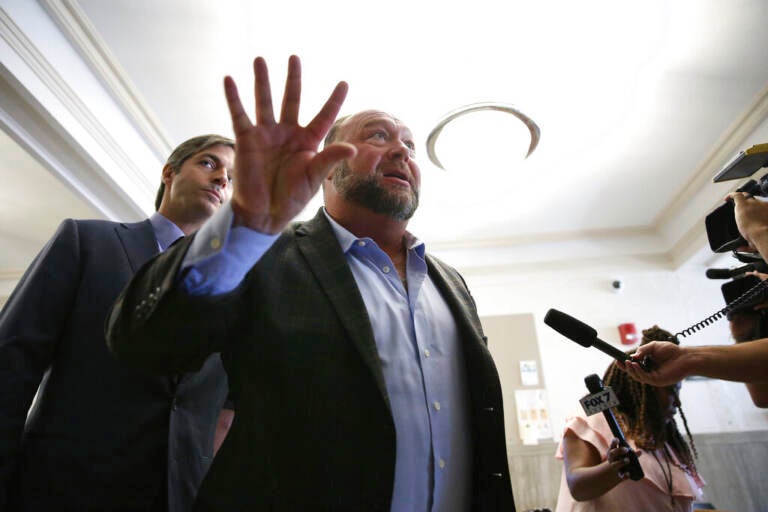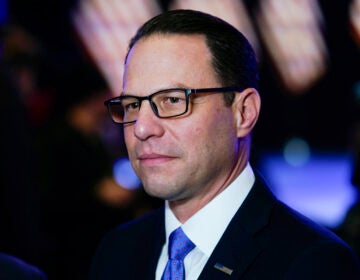Why people believe conspiracy theories
From QAnon to Covid misinformation, people believe all kinds of bizarre conspiracy theories. But far from harmless, these beliefs can have serious real-world consequences.
Listen 49:14
Alex Jones talks to media during a midday break during the trial at the Travis County Courthouse in Austin, Texas, Tuesday, July 26, 2022. An attorney for the parents of one of the children who were killed in the Sandy Hook Elementary School shooting told jurors that Jones repeatedly “lied and attacked the parents of murdered children” when he told his Infowars audience that the 2012 attack was a hoax. (Briana Sanchez/Austin American-Statesman via AP, Pool)
Alex Jones’ defamation trial is underway in Texas. The parents of Jess Lewis, who was 6 years old when he was murdered at Sandy Hook, are seeking damages from Jones for broadcasting lies that the elementary school massacre was a hoax. The parents described how the Infowars founder’s malicious falsehoods made their lives “hell,” being threatened and hounded by Jones’ followers.
Conspiracy theories clearly have real world and devastating consequences—think QAnon and Pizzagate, the Jan. 6 insurrection, and Covid-19 misinformation, but why do people believe them despite overwhelming evidence debunking them? This hour, we’ll talk about how conspiracy theories arise and spread and who believes them. We’ll also discuss the ideological entrepreneurs, like Jones, who spread and capitalize on the lies, and look at these false beliefs pose to our democracy.
Guests
Kathleen Hall Jamieson, Professor and Director of the Public Policy Center at the University of Pennsylvania’s Annenberg School for Communication and co-founder of Factcheck.org. She’s the author and co-author of 17 books including most recently Creating Conspiracy Beliefs: How Our Thoughts Are Shaped.
Dolores Albarracin, Professor and Director of the Science of Science Communication Division of the Annenberg Public Policy Center and Director Social Action Lab at the University of Pennsylvania. She’s also a co-author of Creating Conspiracy Beliefs: How Our Thoughts Are Shaped.
Hilde Van den Bulck, professor of communications at Drexel University
WHYY is your source for fact-based, in-depth journalism and information. As a nonprofit organization, we rely on financial support from readers like you. Please give today.





